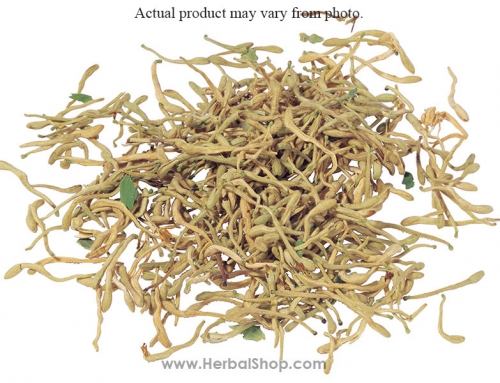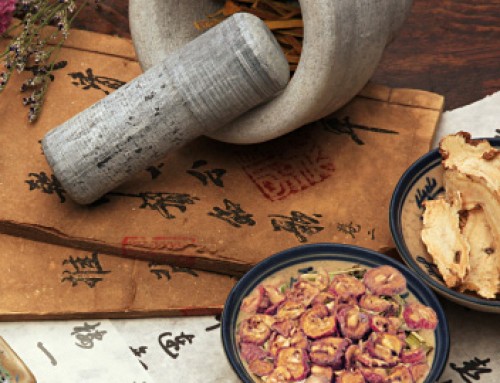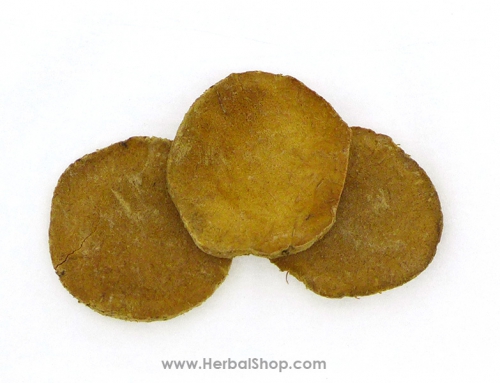黃精
Siberian solomonseal (Huangjing)
Pharmaceutical Name: Rhizome Polygonati
Botanical Name: 1. Polygonatum sibiricum Red.. 2. Polygonatum cyrtonema Hua. 3. Polygonatum kingianum Coll., et Hemsl.
Common Name: Siberian solomonseal rhizome
Source of Earliest Record: Mingyi Bielu
Part Used: The rhizomes are dug in autumn. After the fibrous root have been removed, the rhizomes are dried in the sun and cut into slices.
Natural Properties & Taste: Sweet and neutral
Meridians: Spleen, lung and kidney
Therapeutic Effects:
1. To nourish the yin and moisten the lungs.
2. To tonify the spleen and promote qi.
Indications:
1. Cough due to lung yin deficiency. Siberian solomonseal (Huangjing) is used with Glehnia root (Shashen), Tendrilled fritillary bulb (Chuanbeimu) and Anemarrhena rhizome (Zhimu).
2. Kidney essence deficiency manifested as soreness in the lower back, dizziness and heat in the feet. Siberian solomonseal (Huangjing) is used with Wolfberry fruit (Gouqizi) and Grossy privet fruit (Nuzhenzi).
3. Deficient qi of the spleen and stomach manifested as lassitude, poor appetite and weak and forceless pulse. Siberian solomonseal (Huangjing) is used with Pilose asiabell root (Dangshen) and White atractylodes (Baizhu).
4. Deficient yin of the spleen and stomach manifested as poor appetite, dry mouth, constipation and red tongue proper with no coating. Siberian solomonseal (Huangjing) is used with Glehnia root (Shashen), Ophiopogon root (Maidong) and Germinated millet (Guya).
5. Diabetes. Siberian solomonseal (Huangjing) is used with Astragalus root (Huangqi), Trichosanthes root (Tianhuafen), Ophiopogon root (Maidong) and Fresh rehmannia root (Shengdihuang).
Dosage: 10-20 g (30-60 g for the fresh herb)
Cautions & Contraindications: This herb is contraindicated in cases of deficient spleen with dampness or cough with profuse sputum or diarrhea due to cold in the spleen and stomach.






